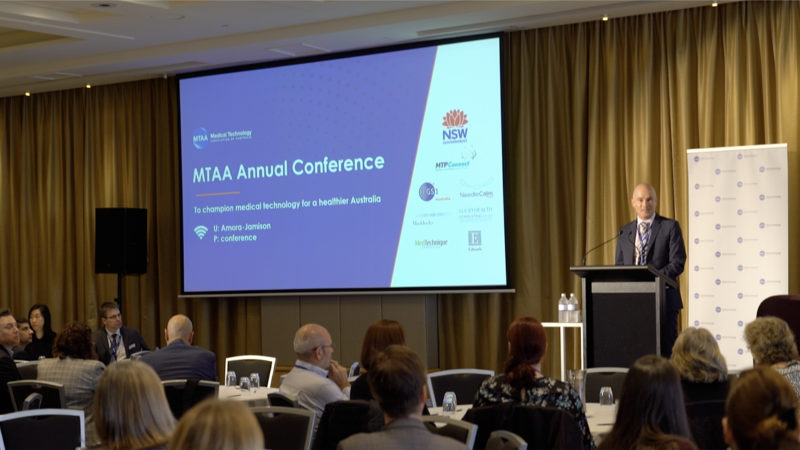ARCS Australia Ltd, the peak body representing professionals in the MedTech and Pharmaceutical sector, this week announced a series of significant changes at its annual conference.
Dr Tim Boyle, CEO of ARCS Australia Ltd speaking to Australian Health Journal says, “These initiatives are central to strategy to build professionalism within the sector, increase capability and enhance the professional standing of its members.”
ARCS has launched a comprehensive Core Competency Framework tailored for the Medtech and Pharmaceutical sectors. The framework is designed to ensure members possess the specialised knowledge and skills required to excel within the sector, aiming to set benchmark for professional excellence.
“Our Core Competency Framework is a milestone in our journey to elevate professional standards for those working within the sector,” said Dr Boyle,. “It provides a structured pathway for continuous professional development common to all sectorial occupations and ensures our members are equipped with the expertise needed to meet professional demands.”
Expanding upon the Core Competency Framework, ARCS has also established international partnerships with the Association of Clinical Research Professionals (ACRP), the Regulatory Affairs Professionals Society (RAPS), and the International Society of Pharmacovigilance (ISoP) to recognise their occupation specific competency frameworks and accreditation standards. These partnerships aim to facilitate the creation of professional training pathways aligned with globally recognised best practice for sectorial occupations.
“Our alliances with ACRP, RAPS, and ISoP are pivotal in offering our members access to globally recognised professional pathways and raising the standard of Australian professionals through globally recognised professional accreditation,” said Dr Boyle.
“These collaborations help raise the bar and advance the professional standing of Australian Medtech and Pharmaceutical professionals on a global playing field.”
In recognition of professional excellence, ARCS will now issue postnominals to professional members based on their expertise. The aim of this designation is to underscore a member’s commitment to the highest standards of practice and their specialised expertise.
“The initiatives we are announcing today mark a new era for ARCS,” Dr Boyle concluded. “By establishing a robust competency framework, recognising professional excellence through postnominals, fostering international collaborations, and honouring our distinguished Fellows, we are setting a new standard for professionalism within the Australian Medtech and Pharmaceutical sectors.”
You Might also like
-
MTAA MedTech19 Annual Conference
MTAA’s annual conference is the premier medical technology industry conference in Australia and brings together leaders and influencers across industry, government and academia to discuss what’s up ahead for the MedTech industry.
-
How I Became an Emergency Physician
Dr Kim Hansen was initially attracted to emergency medicine because of its dynamic and chaotic environment. She enjoyed organising the chaos of the emergency department and working with a variety of patients, from newborn babies to centenarians. Dr Hansen found it fulfilling to help people get better or provide them with assistance and guidance when they couldn’t be cured. The unpredictability of the work was also part of the appeal, and she dedicated herself to developing the skills required to be a good emergency doctor.
-
World-first clinical trial improves patient outcomes for kidney transplants
A world-first clinical trial conducted at the Royal Adelaide Hospital (RAH) and at hospitals across Australia and New Zealand has identified the best fluid treatment to reduce the risk of patients requiring dialysis after a kidney transplant.
Australian Health Journal spoke with the lead-author of the study, RAH Nephrologist and University of Adelaide researcher, Dr Michael Collins.



